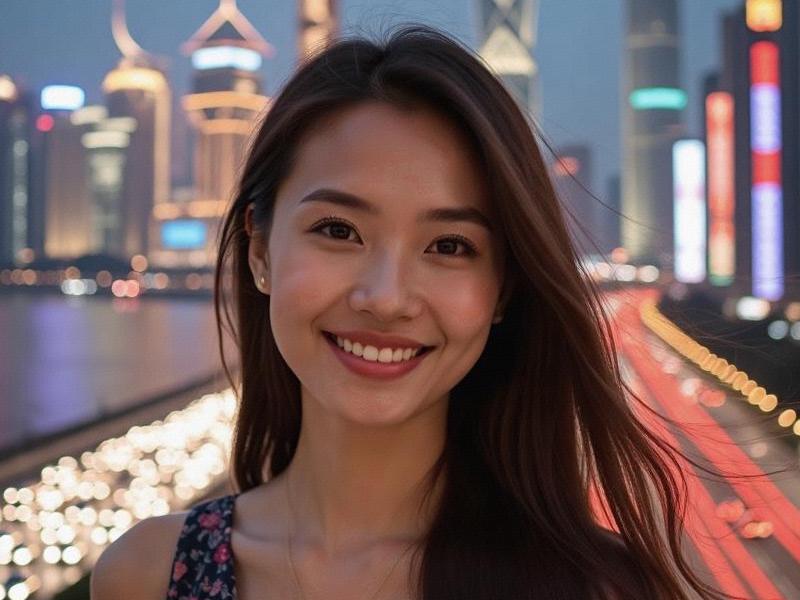This feature examines how Shanghai women are redefining Chinese femininity through a unique blend of traditional values and cosmopolitan ambition, creating a new archetype for Asian urban women.

The morning crowd at Xintiandi's %Arabica coffee shop presents a striking tableau of Shanghai's contemporary feminine ideal - young professionals in tailored qipao-inspired dresses tapping on MacBooks, their Mandarin alternating effortlessly between Shanghai dialect and English business terminology. This scene encapsulates the paradox of modern Shanghai womanhood: deeply rooted in local culture yet confidently global.
Statistical insights reveal Shanghai's gender landscape: Women hold 42% of senior management positions (compared to 28% nationally), the city's female literacy rate reaches 99.3%, and Shanghai brides average 29.7 years at first marriage (latest 2024 data). These metrics reflect a society where traditional "东方美女" (Eastern beauty) standards now incorporate professional achievement and intellectual independence.
"Shanghai women have created a third way between Western feminism and Asian tradition," observes Dr. Elaine Wu, gender studies professor at Shanghai International Studies University. "Their version of empowerment doesn't reject marriage or beauty culture, but demands these complement rather than limit their ambitions."
新夜上海论坛
This evolution manifests across multiple dimensions. Professionally, Shanghai-born women now lead 18 of the Fortune Global 500 companies headquartered in the city. The tech startup scene sees female founders raising 37% of total venture capital. Culturally, Shanghainese designers like Helen Lee are reinventing cheongsam with performance fabrics for working women, while social media influencers such as digital artist Xue Bai have garnered international followings by blending Suzhou embroidery motifs with VR art.
The economic impact is profound. Shanghai's "She Economy" generates ¥680 billion annually across beauty, education, and lifestyle sectors. Women dominate 68% of household financial decisions, shaping real estate and luxury markets. Notably, female consumers drive Shanghai's status as China's top import cosmetics market, accounting for 92% of ¥54 billion in annual sales.
新上海龙凤419会所
Regional influences remain vital. The Jiangnan tradition of educated gentlewomen (才女) merges with Shanghai's cosmopolitan energy. Young professionals often spend weekends in Hangzhou's tea fields or Suzhou's gardens, then return to lead Monday investment meetings. This fluidity between regional heritage and global business creates what sociologists term "the Shanghai feminine duality."
Challenges persist beneath the progress. The "leftover women" stigma still pressures unmarried professionals over 30. Workplace discrimination cases rose 22% last year despite legal protections. And the city's notoriously competitive education system sees many mothers (虎妈 "tiger moms") sacrificing careers for children's academic success.
上海龙凤419自荐
Technological adoption accelerates change. AI-powered fashion apps like "Style Shanghai" help working women coordinate outfits across professional and social contexts. Dating platform "Jiangnan Hearts" connects educated singles through traditional poetry competitions. Even beauty standards are evolving via augmented reality that lets users "try on" different interpretations of Chinese aesthetics.
As Shanghai positions itself as a global capital, its feminine ideal offers an intriguing model. The "Shanghai Style Woman" - equally comfortable discussing Tang Dynasty poetry and blockchain architecture - represents a new paradigm where cultural rootedness enables rather than restricts global engagement.
From the silk-clad executives in Lujiazui to the skateboarding grandmothers in Fuxing Park, Shanghai's women are writing a contemporary chapter in the story of Chinese femininity. In this city where jade bracelets accessorize smartwatches and WeChat mom groups debate Simone de Beauvoir, the future of Asian womanhood is being reinvented - one stilettoed step at a time.